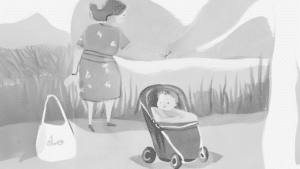By Michel Hendricks, Director of Life Model Consulting, Life Model Works
When I first started learning about the Life Model, one thing that surprised me was the difference between maturity and character. It surprised me that there WAS a difference. I always thought that these two words essentially meant the same thing. However, from the Bible and brain science, we find that both are important for us to grow and thrive, but they are different.
Maturity comes from mastering a growing set of relational skills we were meant to learn as we pass through the stages of life. When we are fully developed for our age, we thrive and operate at a high relational capacity. However, thriving as an infant is different than thriving as an adult. Most of us do not master all of the skills during each stage, but thankfully we can go back and fill in these holes in our relational skill set. Doing our “maturity work” is an essential part of growing as a disciple of Jesus.
Character is our instantaneous responses to our relationships and circumstances — our “gut behavior” that seems to come out before we realize it. How do you react when a driver cuts you off in traffic? When someone criticizes your idea in a meeting? When you find a wallet on the street that is filled with cash? When a co-worker starts an argument?
Jesus was occasionally invited to dinner parties, and he observed a character trait as guests sat down to eat. There was a mad scramble to claim the best seat around the table. Maybe they were following their instant impulses – “get the best seat!” Others like Jesus had a different impulse – “let others go first.” Jesus did not scramble.
I grew up in a family that was reactionary. When I did something wrong as a child, I was often blindsided by a quick highly emotional response. I exhibited this same character trait later in life as an adult, even though I swore I would never act like this. Our character is too fast for our will power to override, so trying to improve our character by “swearing never to do that again” or “trying harder” is a losing strategy. Our character has sprung out before we have a chance to make a better choice. Sometime we can catch ourselves before going down a path too far. Wouldn’t it be better to change our spontaneous responses so that we easily and naturally react in a way that resembles Jesus’ love and patience?
I did not grow up in a Christian family, but I got involved in a Christian group when I was 19. Suddenly I was spending time with people who had better character than I. One day I was helping an older staff member install a sprinkler system in his yard. During a lunch break, his 5 year-old son stuck one of his toys into their VCR. This man calmly walked over and crouched down to look his son in the eyes. He said, “Jeffy, we have talked abour how we treat others’ belongings with respect. Your toy can easily break our VCR. So please don’t do that again.” I saw the whole interaction and my jaw dropped. I had never seen a parent correct a child this way. Unknown to him or me, he rewired the character circuits in my brain that day. And my instantaneous reactions in similar situations changed.
If you are reading this and thinking, “I want more of this in my life! I want more maturity and better character, but I don’t know how,” then join us at Life Model Works on this great adventure. We combine the Bible and brain science to help grow a fearless people who love like Jesus . . . and this requires both maturity and character.
Learn more about how you can be transformed through the Life Model by joining us for a deeper dive into the life Model at our four hour Life Model seminar on March 12. Sign up here!









